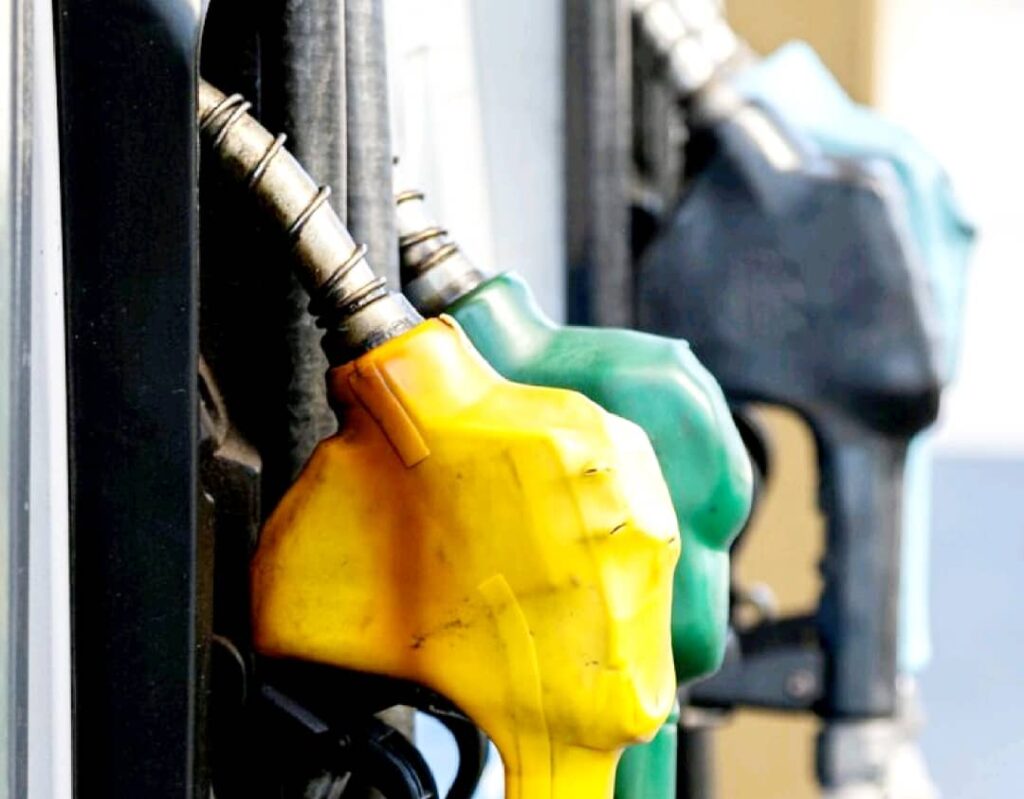The Chamber of Bulk Oil Distributors (CBOD) has projected moderate increases in domestic fuel prices during the first pricing window of August 2025, citing a complex blend of international oil market dynamics, currency depreciation, and rising import premiums.
According to the CBOD’s Market Outlook report for the period spanning August 1 to 15, both petrol and diesel are expected to experience upward adjustments at the pumps.
This follows a slight rally in global oil prices, a weakened Ghanaian cedi, and increased shipping costs that have collectively raised the landing cost of petroleum products.
“Between July 16th and 31st, 2025, total taxes, levies, and regulatory margins on ex-pump prices rose from 28.36% to 34.81% for petrol and from 24.92% to 31.00% for diesel.
“This increase was driven by the introduction of a GHS1 per litre levy; the LPG rate remained unchanged at 15.23%.”
CBOD’s Market Outlook Report
The price of Brent crude averaged $83.91 per barrel during the window’s assessment period, up from the $82.79 recorded in the second pricing window of July 2025.

This rise, though modest, pushed the benchmark closer to the psychologically significant $85 per barrel mark, reflecting ongoing geopolitical tensions and supply uncertainties in key oil-producing regions.
Adding to the pressure is the depreciating cedi, which lost value against major trading currencies during the review period.
The CBOD highlighted that the average ex-refinery dollar rate increased to GHS 15.75, compared to GHS 15.42 from the last window. This depreciation directly translates to higher local fuel costs, as petroleum products are priced in U.S. dollars.
According to the CBOD pricing projection, the average retail price of petrol is expected to rise by 5.49%, increasing from GHS12.34 per litre to approximately GHS13.02.
Diesel is forecast to increase more sharply, by 6.38%, from GHS14.18 per litre to around GHS15.09. Liquefied Petroleum Gas (LPG) prices will remain relatively stable, with a marginal increase of 0.12%, moving from GHS11.55 per kilogram to GHS11.56.
Import premiums have also inched up. The average import premium for petrol rose to $77.78 per metric tonne, while diesel premiums averaged $90.78 per metric tonne.
These premiums essentially the additional costs of transporting and securing refined products have a direct impact on the ex-pump prices paid by consumers.
Fuel Costs Face Headwinds

Behind these price shifts is a broader structural concern in Ghana’s petroleum sector. The supply pipeline remains constrained, partly due to the slowdown in cargo arrivals and limited foreign exchange liquidity for petroleum importers.
In particular, the CBOD highlighted the role of state-owned Bulk Oil Storage and Transportation Company (BOST) in stabilizing the market.
However, the report warned that without improved coordination between the Bank of Ghana and fuel importers, as well as timely intervention by BOST to bridge temporary supply shortfalls, price volatility could escalate in the coming months.
The CBOD also warned that persistent inefficiencies in the Laycan schedule system are contributing to cost volatility.
Disruptions in berthing arrangements and delays at Ghanaian ports have increased demurrage and associated costs for Bulk Import, Distribution and Export Companies (BIDECs), who then pass on these costs to consumers.
Despite the looming hikes, the report does offer some optimism. Refinery margins in the global market have slightly narrowed, which could potentially dampen further increases.

However, the CBOD cautioned that any relief could be wiped out if the cedi continues its slide or if Brent crude breaches the $85 ceiling amid escalating tensions in the Middle East.
“The implementation of the Energy Sector Shortfall and Debt Repayment Levy (GHS1.00 Levy) led to the rise in the pump prices of petrol, diesel, and LPG in the pricing window under review.”
CBOD’s Market Outlook Report
The Chamber reiterated its call for regulatory discipline and a review of key structural inefficiencies.
It advocated for a transparent and consultative approach to the Laycan schedule and tighter control over demurrage-inducing activities to limit unnecessary inflation in fuel pricing.
The CBOD’s mid-year market outlook will be closely watched for indications of longer-term trends as global supply chains remain fragile and geopolitical risk premiums persist.
READ ALSO: IMF Urges BoG to Hold Tight on Policy Rate to Cement Disinflation Gains



















